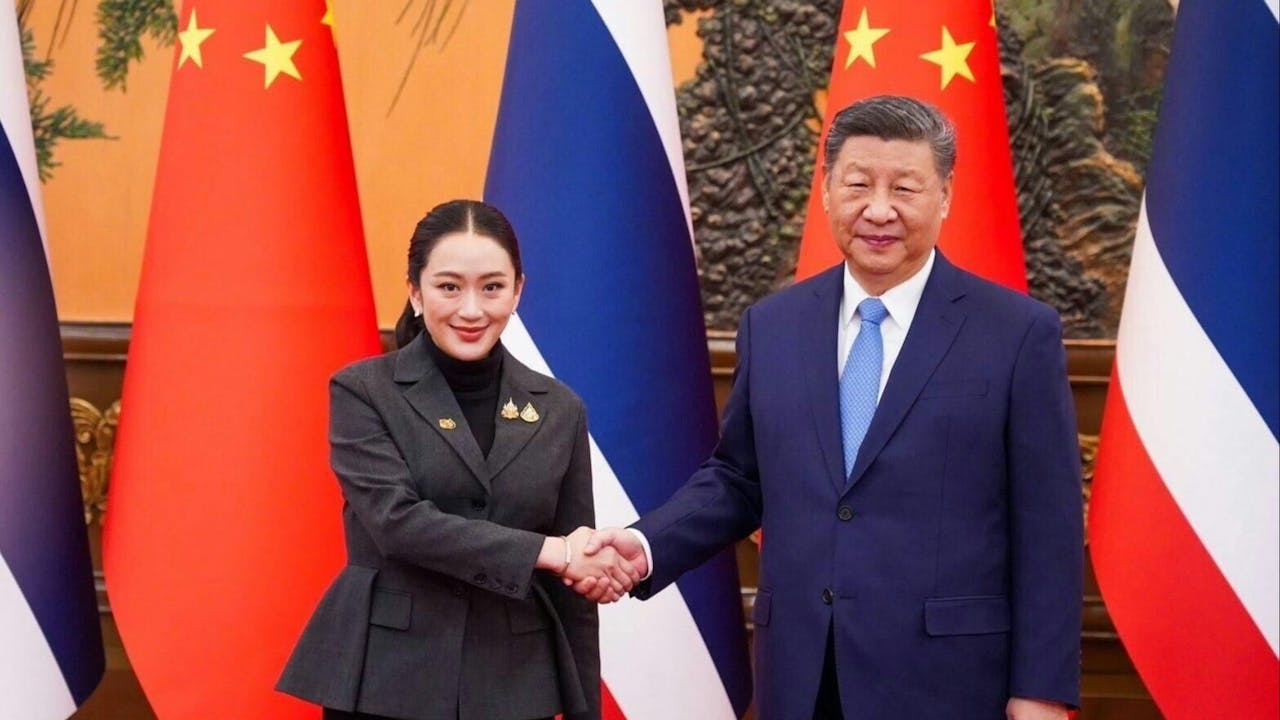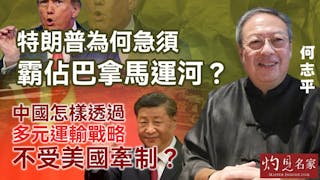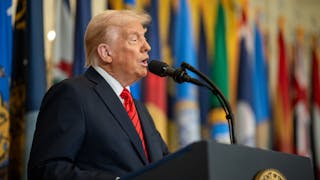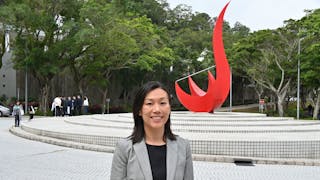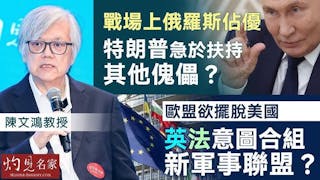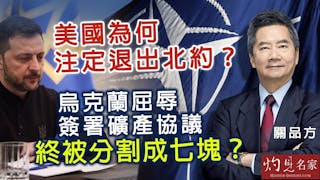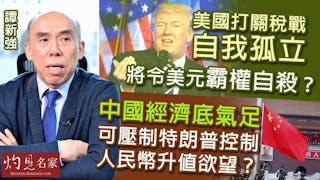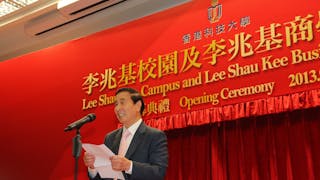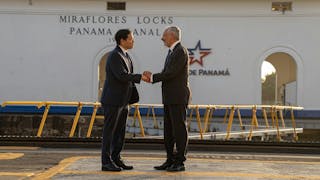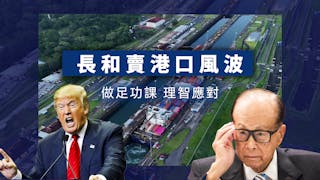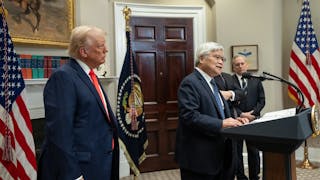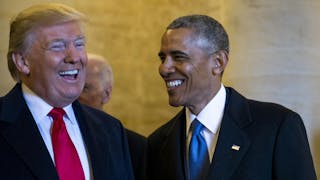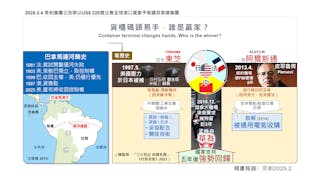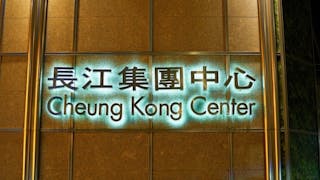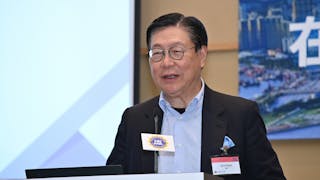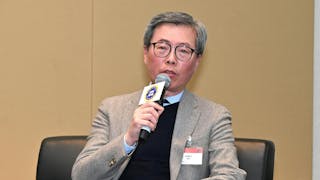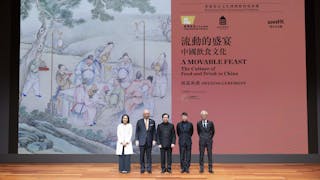泰國總理貝丹東(Paetongtarn Shinawatra)於2月5日至8日到中國的訪問行程為期四天,不僅發表了發展雙邊關係的《中泰聯合聲明》,而且就打擊泰緬邊境詐騙集團的活動達成共識,但實際執行仍需要中緬和泰緬加強政府間的合作。
在貝丹東訪華與中國國家主席習近平會面的前一天,她與泰國國家安全和國防官員舉行了緊急會議,最後決定終止向緬甸邊境地區供應電力和天然氣,以打擊詐騙集團運作。泰國政府強調,總理與內閣作這項決定必須得到官員貫徹執行,否則這些官員可能因怠忽職守而受到懲罰。
2月4日,泰國國防部長普坦.威乍耶猜表示,泰國國家安全委員會與內政部和省電力局官員召開緊急會議,部署如何切斷與非法詐騙活動有關地區的電力供應。他說將下令該地區的電力供應減少50%,緬甸多個城鎮,包括與泰國境內湄索縣相對的緬甸妙瓦底水溝谷將受影響。
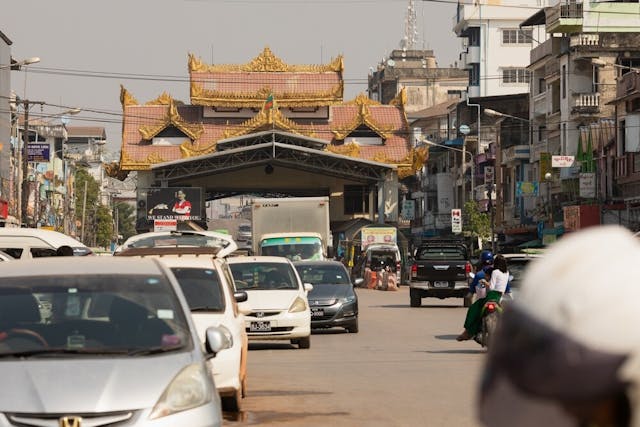
泰方決定向詐騙集團停供資源
泰國國家安全委員會秘書長差猜·邦楚(Phumtham Wechayachai) 表示,中方要求泰方停止向針對中國公民的詐騙集團提供資源後,他與內政部、省電力局、武裝部隊和情報機構官員進行了討論。他說有證據表明緬甸境內的大其力、妙瓦底和帕亞松如都出現跨國犯罪集團的踪跡,而這些集團似乎與那裏的賭場營運商有聯繫。
2月6日,貝丹東在北京會見中國國家主席習近平。習主席對泰國打擊網絡詐騙犯罪活動表示讚賞,貝丹東表示,泰國政府非常願意與中國和世界各國合作,共同維護社會治安,打擊網絡詐騙犯罪活動。
貝丹東表示,兩國始終相互信任和尊重彼此核心利益,泰國堅定奉行一個中國政策,泰國政府將加強與中國在經貿、農業、文化交流、人文交流、打擊跨境犯罪等領域的合作關係。
泰方承認台屬「中國不可分割一部分」
《中華人民共和國政府和泰王國政府關於面向未來、以人民為中心,加強全面戰略合作夥伴關係,推進更為穩定、更加繁榮、更可持續的中泰命運共同體建設的聯合聲明》共有22項,其中重點如下:
第5項表示,中方讚賞貝丹東在促進泰國經濟社會發展方面取得的顯著成就,並堅定支持泰國政府提出的一帶一路倡議、全球發展倡議、全球安全倡議、全球文明倡議。
第6項提到泰國不僅堅持一個中國政策,也承認台灣是「中國領土不可分割的一部分」。
第13項承諾「堅決零容忍態度」,共同打擊人口販賣、電訊網絡詐騙、網絡犯罪、毒品走私、非法網絡賭博、洗錢等跨境犯罪。
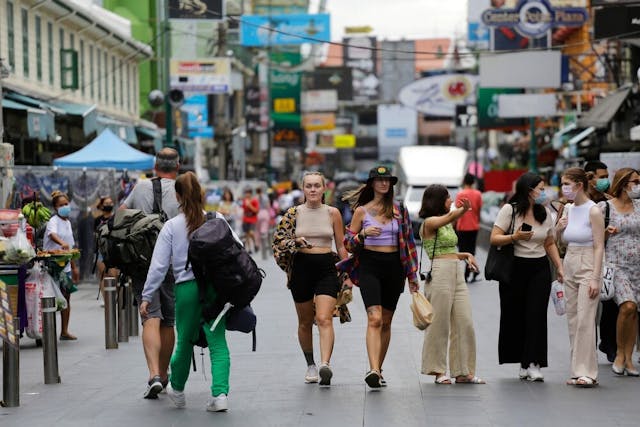
中方堅持美關稅須通過世貿仲裁
第20項指出,雙方需要維護「以世貿組織為核心、以規則為基礎、開放、透明、包容、非歧視的多邊貿易體制」。
第22點是貝丹東邀請中國領導人訪問泰國。
從《聯合聲明》第20點字裏行間可以看出,中國強調世貿組織是「基於規則的多邊貿易體系」,這對其在新總統特朗普領導下不斷惡化的中美關係產生了影響,從中方的角度來看,特朗普的關稅將必須通過世貿組織仲裁。在特朗普政府對華採取更強硬政策之際,北京爭取泰國支持與合作的努力具有外交和政治意義。
中方有必要與緬甸進行外交討論
獲得泰國的支持,對於中泰聯合打擊詐騙集團至關重要,這些犯罪活動已經使許多中國人受害。因為緬甸政權在對付緬東地區的軍閥和詐騙集團表現力不從心,如何確保緬甸政權與中方合作,挑戰將愈來愈大。
總而言之,中泰聯合聲明十分全面,標誌雙邊關係的積極發展,其中最重要的是聯合打擊詐騙集團和泰緬邊境的活動。然而,為了打擊緬東地區的詐騙集團活動,中國有必要與緬甸政權進行外交討論。
終止對泰緬邊境地區的電力供應只是踏出積極的第一步,但這並不是打擊詐騙集團的充分條件。據悉泰國當局終止對妙瓦底、水溝谷和KK園的電力供應後,直升機繼續被用於向這些地區運送天然氣,而當地的柴油發動機仍持續供電。如果這些傳聞屬實,那麼在緬甸軍閥地區打擊詐騙集團的工作將更形複雜及具挑戰。
Sino-Thailand relations and implications for the combat against scam syndicates
The four-day visit of the Thai Prime Minister, Paetongtarn Shinawatra, to China from February 5 to 8 resulted in not only a Sino-Thai Joint Declaration in developing their bilateral relations, but also a consensus on how to fight against scam syndicates along the border between Thailand and Myanmar. Nevertheless, the measures adopted by both sides will need more intergovernmental cooperation between China and Myanmar on the one hand and Thailand and Myanmar on the other hand, for the sake of minimising the activities of scam syndicates.
One day prior to Shinawatra’s visit to China and her meeting with Chinese President Xi Jinping, she held an emergency meeting with the Thai national security and defence officials. They decided that Thailand would terminate electricity supply and gas to the border areas with Myanmar with a view to combatting the scam syndicates. The Thai government announced that this cabinet decision would have to be followed by officials, who could be punished for not implementing the decision. Defence Minister Phumtham Wechayachai said on February 4 that the Thai National Security Council convened the emergency meeting with officials from the Interior Ministry and Provincial Electricity Authority, formulating a plan to cut electricity supplies to areas linked to illegal scam activities (Bangkok Post, February 4, 2025). He added that the Thai Foreign Affairs Ministry would inform Myanmar about the decision that would affect several Myanmar towns, including Shwe Kokko in Myawaddy opposite Tak’s Mae Sot district. These towns are known to host online scam syndicates. Wechayachai added that he would visit Mae Sot district to issue an order to reduce electricity supply to the area by 50 per cent.
The Thai National Security Council secretary-general, Chatchai Bangchuad, remarked that he discussed with the officials from the Interior Ministry, Provincial Electricity Authority, armed forces and intelligence agencies after China had requested Thailand to stop supplying resources to the scam syndicates that targeted Chinese citizens. He elaborated that there was evidence of transnational criminal syndicate activities in the Myanmar territories of Tachileik, Myawaddy and Payathonzu, and that these syndicates appear to have connections with casino operators working there (Bangkok Post, February 4, 2025).
The initiatives from Thailand were a friendly and important diplomatic gesture prior to Prime Minister Shinawatra’s visit to China. On February 6, Shinawatra met Chinese President Xi Jinping in Beijing. President Xi praised the Thai efforts at combatting the scam syndicates, while Shinawatra promised that the Thai government would be very willing to cooperate with China and other countries to maintain law and order and to fight against the online scam criminal activities.
During the meeting with Shinawatra, Xi Jinping added that both China and Thailand had to consolidate their strategic relations and partnerships in the era of tremendous transformations, including the construction of the project of the Sino-Thai railway, the promotion of Sino-Laos-Thai interconnected development, the deepening cooperation in the digital economy and new energy vehicles, the stabilisation of industrial supply chains, the consolidation of judicial cooperation, the joint leadership in the Lancang-Mekong Cooperation, and the achievement of global peace (news report from the Chinese Ministry of Foreign Affairs, February 6, 2025).
In response to President Xi’s remarks, Shinawatra said that she was delighted to visit China on the occasion of the Golden Jubilee of Thailand-China Friendship, that both countries often trusted and respected each other’s core interests, that Thailand firmly pursues the one-China policy, and that her government would strengthen relations with China in the areas of economy, trade, agriculture, cultural exchange, people-to-people exchange, and the combat against cross-border crimes.
All the aforesaid discussions have been incorporated in a “Joint Statement between the Government of the People’s Republic of China and the Government of the Kingdom of Thailand on advancing the comprehensive strategic cooperative partnership and building a China-Thailand community with a shared future for enhanced stability, prosperity, and sustainability through a forward-looking and people-centred vision” (Global Times, February 8, 2025).
The Joint Statement includes 22 points. It is noteworthy that point 3 points to China and Thailand as “one family” deeply ingrained in the hearts of the two peoples. Point 5 says that China commends Shinawatra’s remarkable achievements in promoting socio-economic development in Thailand, and that China firmly supports her government through the Belt and Road Initiative, the Global Development Initiative, the Global Security Initiative, and the Global Civilisation Initiative. Point 6 mentions Thailand’s adherence to not only the one-China policy but also its recognition that Taiwan is an “inalienable part of China.” Point 11 states that Thailand appreciated China’s goodwill in allowing the Lord Buddha’s sacred Holy tooth relics from Beijing’s Lingguang Temple to be sojourned in Thailand, while China would favourably consider Thailand’s request for continuing international panda research cooperation.
Point 13 vows to cooperate jointly in the combat against transnational crimes, such as human trafficking, online scams, cybercrimes, drug trafficking, illegal online gambling, and money laundering with “a firm stance of zero tolerance.” Point 14 calls for mutual collaboration in combating climate change and pollution as well as poverty. Point 15 points to the need for health cooperation to enhance health security, technological exchange and traditional medicine study. Point 16 emphasises the upholding of ASEAN centrality and China-ASEAN community with a shared future. Point 17 mentions that both sides support Hong Kong’s accession to the Regional Comprehensive Economic Partnership (RCEP). Point 18 reaffirms the importance of maintaining peace, security and stability in the South China Sea while calling for the early conclusion of a Code of Conduct in the South China Sea. Point 20 points to the need for both sides to safeguard “the rules-based multilateral trading system with the WTO at its core, which is open, transparent, inclusive and non-discriminatory.” Point 22 points to Shinawatra’s invitation to the Chinese leaders to visit Thailand.
Overall, the Joint Statement integrated all the issues discussed and consensuses reached by Shinawatra and President Xi as well as Premier Li Qiang. Interestingly, China grasped this golden opportunity to consolidate its relations with Thailand and secure its support of China’s various initiatives, such as Belt and Road Initiatives, and its reiteration of adopting the one-China policy as well as its support of Hong Kong to enter RCEP. Reading between the lines in Point 20, China’s emphasis on WTO as “rules-based multilateral trading system” has implications for its deteriorating relation with the US under the new President Donald Trump, whose tariffs, from the Beijing perspective, will have to go through the WTO arbitration. At a time when the Trump administration is adopting a more hawkish policy toward China, Beijing’s efforts at securing the support and cooperation of Thailand are diplomatically and politically significant.
On the joint combat against scam syndicates, securing Thailand’s support is essential for China to combat cross-border scam criminal operations that have victimised many Chinese. A more increasing challenge is how China will secure the cooperation of the Myanmar regime, which is relatively weak in dealing with the warlords and scam syndicates in the eastern region of Myanmar. In April 2024, it was reported that, after China’s campaign to fight against scam syndicates in the northern Shan state in Myanmar, some scam centres migrated to eastern Shan state and the Karen state in eastern Myanmar along the Thai border, where the Karen militia forces have distanced themselves from the Myanmar military regime and tolerated the criminal empires (United States Institute of Peace, April 22, 2024).
The Karen National Army leader, Colonel Saw Chit Thu, in October 2024, reportedly issued a public letter to call for online gambling operators in Shwe Koko New Town to vacate the area in late October, but critics said that this was only a “gesture,” and the operators continued to work there. Even worse, online scam operations proliferated until the kidnap of Chinese actor Wang Xing was reported in January 2025. However, Colonel Saw Chit Thu reiterated on January 22 that his militias would work with international organisations to fight criminal elements in Myawaddy. It remains to be seen whether scam syndicates can really be controlled.
One complexity in Karen state is that there are different militias operating there, including the Karen National Union, the Democratic Karen Benevolent Army (DKBA), the Karen National Army, the New Mon State Party, and the All Burma Students Democratic Front (News from Myanmar, February 3, 2025: Chinese-led scam operations and human trafficking surge in Karen State amid armed group control – ENG.MIZZIMA.COM). It is reported that the DKBA is the dominant group in Karen. If Myanmar’s military regime is substantially a weak state which cannot easily control the regional warlords, the combat against scam syndicates appears to be a more complicated issue that necessitates China’s diplomatic negotiations and discussions with the Myanmar government, whose governing capability in its eastern regions remains relatively weak.
In conclusion, the Joint Statement between China and Thailand on their diplomatic, economic, socio-cultural, health and environmental cooperation is a comprehensive one, signalling a positive development in their bilateral relationships, including most importantly the joint combat against scam syndicates and operations in the Thai border with Myanmar. However, China’s diplomatic discussions with the Myanmar regime will be necessary to combat the operations of scam syndicates in the eastern regions of Myanmar. The termination of electricity supply to the territories along the Thai border with Myanmar appears to be a positive step forward, but it is not a sufficient condition in the combat against scam syndicates. It was rumoured that, after the Thai authorities’ termination of electricity supply to Myawaddy, Shwe Kokko and KK Park, helicopters were seen as carrying gas to the regions, while diesel engines have been used to continue the supply of electricity there (NTDTV news, February 8, 2025: 泰國斷電後電詐園仍發電運營 傳直升機運送油罐車(視頻) | 緬甸電詐園 | 妙瓦底 | 發電機 | 新唐人电视台 (ntdtv.com)). If these rumours turn out to be the real situation, then the combat against scam syndicates in the warlord regions of Myanmar is more complicated, even though the Sino-Thai cooperation in the fight against cross-border crimes is undoubtedly a positive step forward.
原刊於澳門新聞通訊社(MNA)網站,本社獲作者授權轉載。(原文按此)



